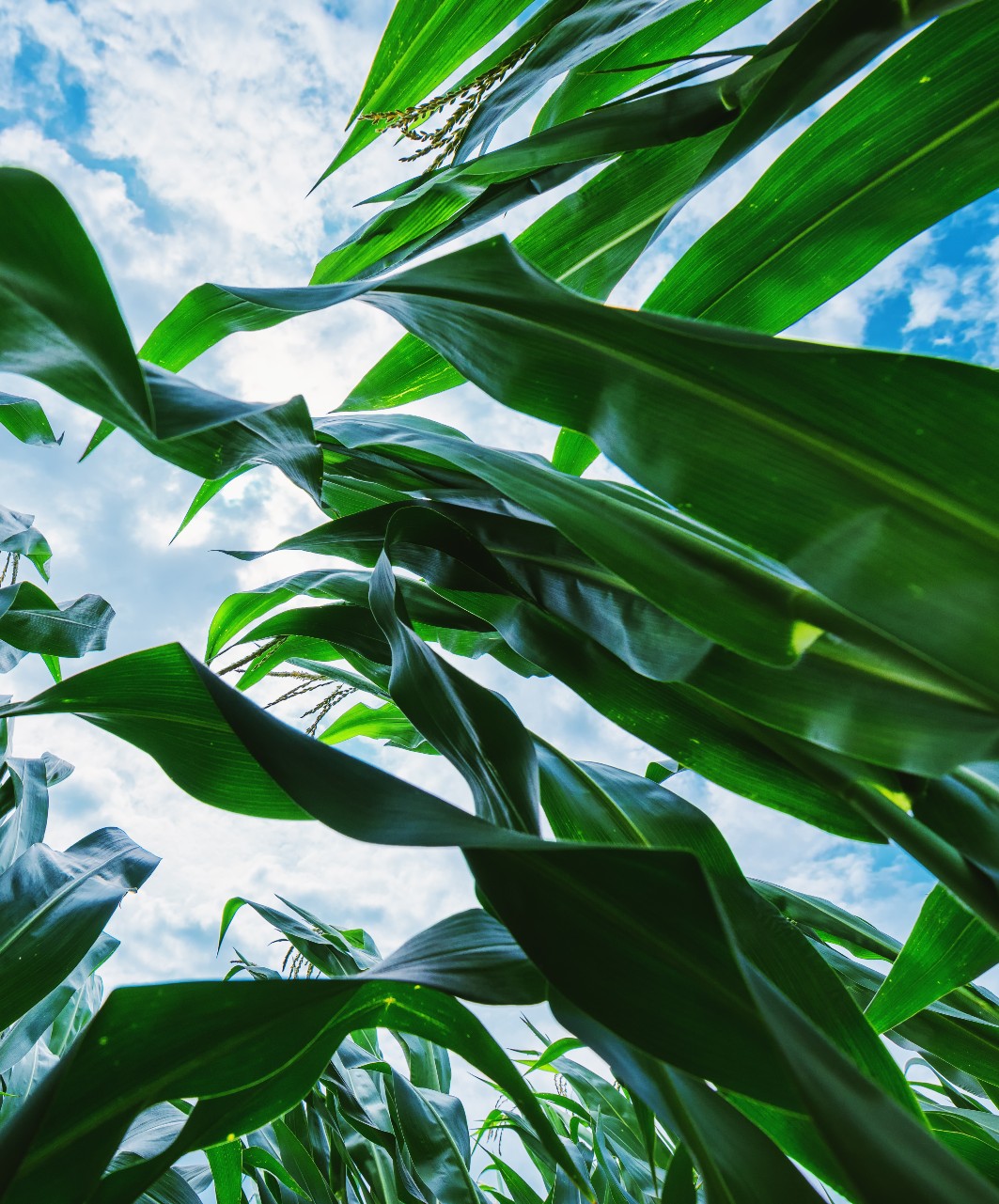
Ability
h01
Industry
h02
Energy
h03
Biogenic carbon is carbon that comes from living organisms or has been part of the recent natural cycle, such as plants, animals, or microorganisms. Unlike fossil carbon, which has been stored underground for millions of years, biogenic carbon is part of the natural cycle of life, where plants absorb it through photosynthesis.
When we use biomass from corn crop residues at our La Robla plant, we are harnessing this carbon, which is already part of nature's short cycle. By capturing the CO₂ released during the process, we do not add new carbon to the atmosphere, maintaining a neutral carbon balance.
At the heart of our facility, a true modern alchemy takes place. Corn waste that was previously burned or left to decompose, releasing emissions into the atmosphere, now fuels our biomass plant. The CO₂ captured from this process, instead of being released into the atmosphere, becomes the raw material for our e-methanol.
This biogenic CO₂, combined with green hydrogen, allows us to produce e-fuels such as e-methanol, offering a virtually carbon-neutral solution for hard-to-decarbonize sectors such as shipping and aviation.
While being carbon neutral means that CO₂ emissions are balanced by the same amount removed from the atmosphere, at Reolum we go further. Our biomass cogeneration with CO₂ capture not only avoids emissions but actively removes carbon from the atmosphere, becoming a carbon-negative facility.
This approach goes beyond the concept of carbon neutral or net zero, which simply means that facilities can continue emitting CO₂ as long as they offset those emissions elsewhere. We sequester more carbon than we emit, actively contributing to reversing climate change.
Captured biogenic carbon is becoming a valuable commodity. In the near future, we see multiple applications:
What makes our La Robla project unique is the perfect integration of tradition and innovation. Biomass, one of humanity's oldest energy resources, meets cutting-edge carbon capture and e-methanol production technology.
In this integrated system, nothing is wasted: agricultural waste generates renewable energy, captured CO₂ becomes raw material for our e-methanol, and the oxygen released during green hydrogen production has multiple applications:
For local farmers in Castilla y León, our biogenic carbon capture system has turned a problem into an opportunity. Corn crop residues, which previously represented a cost and environmental challenge, now generate additional income and contribute to the region's circular economy.
Every ton of CO₂ captured tells a story: that of a community that refused to accept industrial decline, but instead embraced the sustainable future we are building together at Reolum.
Join us in this carbon revolution. We're not just adapting to climate change: We are leading the solutions the world needs.
